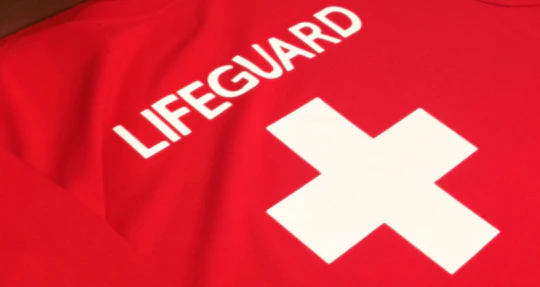As summer comes to an end, many lifeguards who only work seasonally may be wondering if recertifying their lifeguard training is really needed if they won’t be working until next year. While it may seem like extra effort, going through a lifeguard recertification process can help ensure lifeguard skills are maintained even during off-season months.
Keeping Skills In Lifeguard Recertification
Lifeguarding requires constant vigilance and fast reaction times in emergency situations to save lives. Even if only working a few months out of the year, lifeguards are responsible for the safety of pool patrons. Letting lifeguard skills lapse could result in missing a distress situation or responding too slowly.
Lifeguard recertification helps refresh important skills like lifeguard recertification techniques, CPR/first aid, scanning patterns, and documentations procedures that can deteriorate if not used regularly. Many certifying bodies, like the American Lifeguard Association, only allow certifications to be valid for 2 years for this reason.

Liability Is a Concern
As the person responsible for safety at an aquatic facility, a lifeguard performance directly impacts liability. If god forbid something did happen requiring emergency response on a seasonal lifeguard’s watch after months without actively lifeguarding, their lack of recent practice could increase the facility’s legal liability.
Lifeguard recertification helps demonstrate an ongoing commitment to maintenance of lifeguard competence, which can help minimize liability risks in the event of an emergency.
Expanded Job Opportunities
Lifeguards who maintain active certifications year-round also open themselves up to more job opportunities. Recertification keeps credentials currently valid so a lifeguard is eligible not just for seasonal work, but potentially for substitute lifeguard shifts throughout the year if a facility needs additional coverage.
It also makes seasonal guards eligible if positions open up at other aquatic facilities during off-months. An idle certification limits career flexibility and prospects.
Training Stays Engrained
While certifications expire after 2 years, the sooner skills start to lapse after a lifeguard’s season ends affects how quickly they would need to be retrained to competency if recertifying after a longer break. Research has shown that skills fade faster if not used for extended periods, and relearning takes more work the longer it’s been.
Regular recertification helps keep key lifeguarding abilities like surveillance techniques, rescue protocols, and first aid/CPR skills engrained at a higher level rather than having to rebuild competency from scratch after a lengthy off-season.

Staying Sharp is Risk Prevention
Accidents can happen even to the most experienced lifeguards if skills have dulled. Undergoing annual or biennial the lifeguard recertification ensures open-water lifeguards maintain the high standard of competency needed to effectively respond to aquatic distress situations.
By keeping lifeguarding abilities polished year-round instead of only when actively working, seasonal staff reduce risks that could compromise safety. A few hours every year spent recertifying pays major dividends in risk management and prevention compared to more extensive retraining later.
Frequents Skills are Key for Success
While lifeguarding may only be a seasonal role for some, keeping skills sharp through regular practice is important for maintaining competence and career success. lifeguard recertification processes provide an ideal way for open-water guards to brush up on critical abilities.
Scanning is an Essential Technique
Efficient scanning techniques are the lifeguard’s most basic but critical tool. Being alert to possible emergencies in the water requires lifeguards to make continual 360-degree sweeps of their zone.
Even a season off the stand can cause scannning skills to grow rusty. Lifeguard recertification classes refresh scanning protocols and help lifeguards retrain their eyes to efficiently cover large stretches without missing any signs of distress.
Recognition Skills are Subtle but Significant
Truly experienced lifeguards pick up on subtle behaviors that could indicate a swimmer is struggling, such as flailing arm motions, bobbing heads, or anxious facial expressions.
Spending months away from the pool can weaken a guard’s ability to swiftly notice worrisome signs that a patron may need assistance. Lifeguard recertification training focuses on honing visual recognition skills to a razor-sharp level once more.
Rescue Protocols Ensure Swift Action
Whether performing deepwater rescues with rescue tubes or lateral spinal injuries extractions, safe and properly executed rescues are the last line of defense in an emergency.
Becoming rusty on protocols and proper form could mean the difference between a successful rescue and worsening a situation. Recertifying allows guards to repetitively practice rescue techniques until they are ingrained as second nature.
CPR and First Aid Saves Lives
Within minutes, someone’s chances of survival drop significantly if CPR or other first aid is not administered. Lifeguards must be ready to perform these emergency procedures flawlessly and without hesitation.
Lifeguard recertification guarantees open-water guards solidify their ability to deliver uninterrupted chest compressions at the proper depth and rate or dress various wounds appropriately. Read more informative article click here.
Final Opinion
While lifeguard recertification may seem like an unnecessary hassle for seasonal lifeguards not working year-round pools, taking the time to refresh important skills on a regular basis has numerous short and long-term benefits. It demonstrates an ongoing commitment to safety that can reduce liability risks for facilities.
It also keeps lifeguards employment-ready and helps skills stay engrained, versus needing more retraining after longer breaks. For these reasons, most experts agree regular recertification is worthwhile even for lifeguards who only work seasonally. Maintaining credentials current leads to higher job prospects while also helping ensure public water safety.

